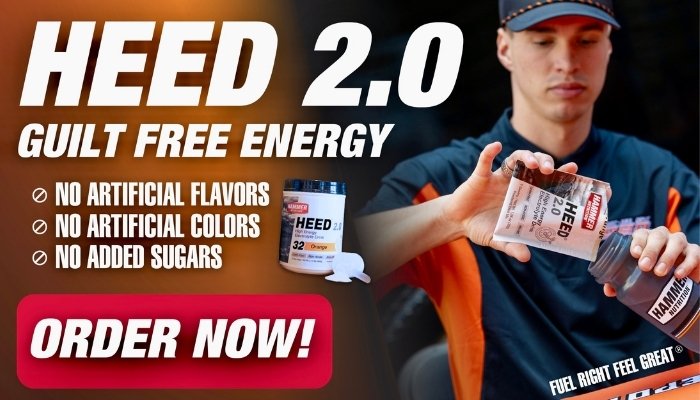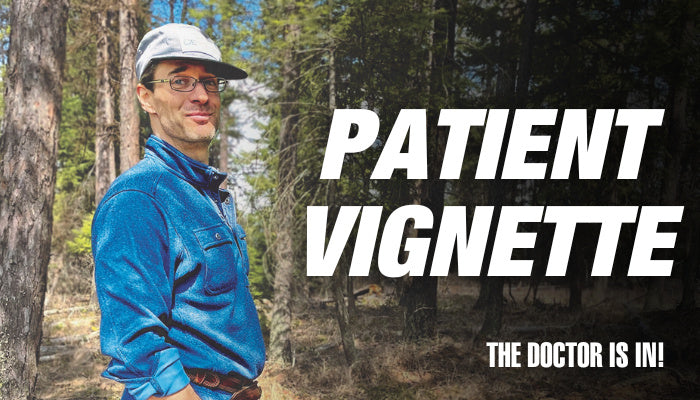
You may not need them
BY: STEVE BORN
With one in four deaths in the US linked to cardiovascular disease (CVD) [1], it’s nothing to brush off. High cholesterol and its link to CVD, and the prescribing of statin medications, remains a hot topic, and this “issue” includes athletes as well. As stated in an article on the MedicalNewsToday website, “Although active people usually have lower cholesterol levels, athletes can have high cholesterol. In particular, a high-fat, low carb diet has been linked to higher cholesterol levels in ultra endurance athletes.”[2]
This topic is especially important to you because when it comes to cholesterol and other health issues, most often discussed with your MD, most are “outliers” that don’t fit the mold of the vast majority of patients they see. As a result, they just shrug and try to get you to fit into their boxes anyway. If this resembles your experiences with your healthcare provider, keep reading!
Instead of the “one size fits all” approach (Total Cholesterol above 200) or LDL alone to determine the need for statin medications, we are in agreement with Dr. Lustig that the most important and reliable method for determining cholesterol’s role in cardiovascular risk is the Triglyceride to HDL ratio (TG:HDL). We believe that those who are at or slightly above the “magic 200 number” in terms of total cholesterol should also look at their TG:HDL ratio and discuss with their health care professionals—and adopt the more-natural strategies listed earlier—instead of simply reaching for statin medication.
Statins medications are among the most commonly prescribed medications for treating high cholesterol, with annual sales in the billions of dollars. For some individuals, statin medications have been proven to be effective; however, research suggests that statins are being overprescribed and should only be used for high-risk individuals.
First, we are going to talk about cholesterol and break it down into its components and what they mean. Next, we will discuss statin medications and the dangers of “primary prevention” prescriptions.
The problem is the “one size fits all” approach that many health care professionals apply; they continue to look only at Total Cholesterol numbers (HDL + LDL) or LDL only as the primary risk factors for heart disease. They will often suggest that patients—athlete and non-athlete alike—whose Total Cholesterol level is even slightly over the ideal limit of 199 mg/dL begin a regimen of statin medications.
Fortunately, research has shown that there is a marker that is more reliable in determining cardiovascular disease risk than Total Cholesterol or LDL only — the ratio of Triglycerides (TG) to HDL (“good”) cholesterol, or TG:HDL. In the words of highly respected nutritional scientist, Dr. Robert Lustig, “Therefore, the triglyceride-to-HDL ratio – the real ratio of bad to good cholesterol – is the best biomarker of small dense LDL, the best biomarker of cardiovascular disease, and the best surrogate marker for insulin resistance and metabolic syndrome.” Dr. Mark Hyman agrees: "In fact, your LDL cholesterol is a very bad predictor of your risk of heart disease when compared with the total cholesterol-to-HDL ratio. And this is not as good a predictor as the triglyceride-to-HDL ratio." [3]
Before we start calculating the TG to HDL ratio, here are some explanations, standard ranges of cholesterol numbers, and healthy level ranges of cholesterol numbers:
Total Cholesterol is a measure of the total amount of cholesterol in your blood. It includes both low-density lipoprotein (LDL) cholesterol and high-density lipoprotein (HDL) cholesterol.
- Total Cholesterol standard range: 0 - 200 mg/dL
- Total Cholesterol healthy level range: 125 - 199 mg/dL
- Borderline high: 200 - 239 mg/dL
- High: at or above 240 mg/dL
HDL (good) cholesterol – HDL helps remove cholesterol from your arteries.
- HDL Cholesterol standard range: 40 - 90 mg/dL (women) -- 50 mg/dL (men)
- HDL Cholesterol healthy level range: 40 mg/dL or higher (women) -- 50 mg/dL or higher (men)
LDL (bad) cholesterol – The main source of cholesterol buildup and blockage in the arteries.
- LDL Cholesterol standard range: 0 - 130 mg/dL
- LDL Cholesterol healthy level: Less than 100 mg/dL
Non-HDL Cholesterol – This number is your total cholesterol minus your HDL. Non-HDL includes LDL and other types of cholesterol, such as VLDL (very-low-density lipoprotein).
- Non-HDL standard range: 0 - 159 mg/dL
- Non-HDL healthy level: Less than 130 mg/dL
Triglycerides – A form of fat in your blood that can raise the risk for heart disease.
- Triglycerides standard range: 0-150 mg/dL
- Triglycerides healthy level: Less than 150 mg/dL
Total Cholesterol to HDL-C – Total Cholesterol to HDL-C (HDL Cholesterol).
- Total Cholesterol to HDL-C standard range: 0.0 – 5.0
- Total Cholesterol to HDL-C healthy level range: under 3.5
A Better Predictor—The Triglycerides to HDL-C Ratio
To obtain the ratio, divide the TG number by the HDL number.
Example:
- TG is 100
- HDL is 80
- 100 divided by 80 = 1.25
Ideal – TG:HDL is 2 or less
Healthy – TG:HDL is 3
High – TG:HDL is 3.5 is high
Too High – TG:HDL is 6 or greater
The issues with statin medications
For high-risk individuals, statin medications can provide significant benefits for lowering LDL cholesterol, but when prescribed as a preventative for low-risk individuals:
- Those whose Total Cholesterol to HDL-C ratio is ideal at under 3.5
- Those whose Triglycerides to HDL Cholesterol ratio is 3 or less
- Those whose Total Cholesterol is above the “magic 200 number” and the low-borderline range (ex: 210 mg/dL)
… statins’ side effects clearly outweigh the benefits.[4] Dr. Bayne French elaborates:
There is certainly something powerful biologically going on with statin medications. In addition to lowering cholesterol, they lower inflammation and act as antioxidants. [However], to say that they are universally beneficial and indicated for everyone with elevated cholesterol is grossly inaccurate. Statins likely help reduce CVD in certain situations. Like men under 70 who have already had a heart attack, and men with numerous risk factors (elevated blood pressure, abdominal obesity, diabetes, smoking, etc.). As Abramson et al (BMJ. 2013) reported, for the majority of people for which statins are prescribed (specifically for "primary prevention," people who DO NOT have heart disease), the benefit is lacking, while side effects and risks are significant.
Side effects associated with statin medications
Here are but a few of the side effects—some are obviously quite serious—that may be experienced while on statin medications:
- Fatigue
- Headache
- Memory issues such as confusion, forgetfulness, confusion, and a decreased ability to process information
- Increased blood sugar levels and type 2 diabetes
- Stomach issues such as nausea and diarrhea
- Muscle pain
- Liver and kidney damage
While some of these side effects are considered rare, why flirt with the potential for them to occur if a statin medication isn’t truly needed?
Additional statin issues
It is well known that statins deplete the body’s levels of Coenzyme Q10 (CoQ10), perhaps the most important nutrient for human health. CoQ10 is classified as ubiquinone, from the word “ubiquitous,” because it is present in every cell in the body, CoQ10 produces ATP [what does ATP stand for?](energy) at the cellular level, energy that the body requires to stay healthy and optimize all its functions.
Nutritional scientists are universally in agreement about the importance of CoQ10; here are just a couple of comments:
- "Without CoQ10 or a good substitute, human life quickly ends." - James South
- “That CoQ10 plays a crucial role in aging is beyond doubt. The same applies to CoQ10's role in the immune system. And there is a vital connection between the immune system and aging that cannot be ignored.” - Emile G. Bliznakov MD
- "CoQ10 is energy on call. I have long considered CoQ10 a wonder nutrient because of its ability to support heart health.” - Dr. Stephen Sinatra
- “Ubiquinone (CoQ10) is possibly the hub around which life processes revolve in the human body.” - Dr. William V. Judy
It’s clear that CoQ10 is essential for life, yet many who take statin drugs are not made aware of their negative impact on CoQ10 levels—statin side effects increase with decreased bodily levels of CoQ10—and are thus not taking this all-important nutrient.
It is also believed that statin medications may interfere with the synthesis of vitamin K2, which, in tandem with vitamin D3, is crucial for supporting both bone and cardiovascular health. Vitamin K2 activates a protein called osteocalcin, which helps keep calcium out of the arteries while increasing the amount of calcium in the bones (teeth as well). Vitamin K2, working alongside vitamin D3, also promotes healthy glucose metabolism to maintain proper blood sugar levels, thus helping protect against type 2 diabetes.
1) Diet first. The most important thing is addressing the diet and correcting dietary errors, primarily the excess intake of omega-6 fatty acids.
2) Consistent exercise. Master athletes are reported to have lipid profiles similar to young adults, decreasing their risk of heart disease.
3) Supplementation. A number of nutrients/substances are reported to help lower elevated cholesterol levels, including Coenzyme Q10, the essential fatty acids EPA and DHA, probiotics, and more
More details about all three strategies are found in the article “Lower Cholesterol Levels By Up to 30% at https://hammernutrition.com/blogs/endurance-news-weekly/lower-cholesterol-levels
Summary
Instead of the “one size fits all” approach (Total Cholesterol above 200) or LDL alone to determine the need for statin medications, we are in agreement with Dr. Lustig that the most important and reliable method for determining cholesterol’s role in cardiovascular risk is the Triglyceride to HDL ratio (TG:HDL). We believe that those who are at or slightly above the “magic 200 number” in terms of total cholesterol should also look at their TG:HDL ratio and discuss with their health care professionals—and adopt the more-natural strategies listed earlier—instead of simply reaching for statin medication.
Statins medications are among the most commonly prescribed medications for treating high cholesterol, with annual sales in the billions of dollars [6]. For some individuals, statin medications have been proven to be effective; however, research suggests that statins are being overprescribed and should only be used for high-risk individuals [7, 8].
As Dr. Andrew M. Freeman states, referring to the American College of Cardiology/American Heart Association (ACC/AHA) guidelines, “Lifestyle, in the form of diet, exercise, stress relief, and connection and support with others, is nature’s best way to improve overall health, including cardiovascular health. We know that making dietary interventions, combined with exercise, can sometimes lower cholesterol as effectively, or even more effectively, than statins.”
REFERENCES:
[1] https://www.cdc.gov/heartdisease/facts.htm
[2] https://www.medicalnewstoday.com/articles/high-cholesterol-in-endurance-athletes
[3] https://www.levels.com/blog/the-ultimate-guide-to-understanding-your-cholesterol-panel-and-metabolic-blood-tests
[4] https://www.thennt.com/nnt/statins-for-heart-disease-prevention-without-prior-heart-disease-2/
[5] https://hammernutrition.com/blogs/endurance-news-weekly/lipids-a-different-perspective-part-3
[6] https://www.ncbi.nlm.nih.gov/pmc/articles/PMC3108295/
[7] https://www.acpjournals.org/doi/10.7326/M18-1279
[8] https://www.ncbi.nlm.nih.gov/pmc/articles/PMC4857879/










9 comments
Just something to consider. Make cholesterol numbers were always perfect and then 4 years ago it all changed when I collapsed on my bike ride ended up in the ER and my LAD was 90 % blocked and now have a stent and on a statin. The one thing that never gets totally looked at is Genetics ! So ever though all my numbers were perfect my arteries still clogged
———
Hammer Nutrition replied:
Hello Steven, thank you for your comment. You make a very good point. Arterial occlusion is common and not often checked or monitored properly, nor is it addressed by statins. This can be done via duplex ultrasound, CT angiography and or arteriography and is recommend for those with genetic predisposition or anyone over 40 with elevated blood pressure or other indicators of possible occlusion. BDF
Excellent information here, including comments. I too have had high cholesterol most of my life. I’m now 67 years young. Have always eaten well and been extra active. My good cholesterol is consistently high, Triglycerides very low. I resisted the advice to take statins until 2 years ago. When i turned 65, my doctor recommended a heart scan. The scan revealed a tiny trace of calcium. I was told, now i indeed need to take a statin, so i am. What are your thoughts on that? Do you agree, if there’s any amount of calcium shown in a scan that statins are a must?
———
Hammer Nutrition replied:
Hi Kristen, thank you for your comment and questions. According to the literature, statins are not know to reduce calcium deposits/plaque and in fact may increase calcium levels in atherosclerotic plaques. Not sure why your doc is correlating the two. Magnesium and vitamin K are helpful in this regard however. Bottom line, read the side effects of the statin you are taking, and get a second opinion before you continue much longer. BDF
Pay attention to LipoProteins. LipoProtein A was the smoking gun that nearly killed me causing 96% blockage of my LAD, resulting in cardiac arrest 9 years ago. My overall cholesterol panel from my primary care physician was “elevated”. A more in-depth panel would have shown my LipoProtein A was off the charts! Over 5 times a normal reading. I’m on 2 statin and an ACE inhibitor. I was a high level athlete for years and was canoeing when I had my arrest. I am able to do all of it still. Lucky to be alive. f you have elevated cholesterol, get a more in depth panel done.
Great article: I have a Tri-HDL Ratio of .85 but unfortunately, I have super high APOb and Off the charts LP. Trying to put off meds but looking bleak based on my genetics, have been doing everything right for years :(
———
Hammer Nutrition replied:
Hi Sandy, thank you for your comments. You reinforce a good point; cholesterol numbers, including TG/HDL do not tell the whole story. Genetic factors such as you state as well as arterial blockage/occlusion must be assessed proactively and addressed if necessary. The holistic approach to your situation is dietarily; reduction of refined sugar and grains, total elimination of processed foods, especially seed oils and increased fiber. Supplements omega 3’s, along with D3/K2, magnesium and CoQ10. BDF
Was on statins from ‘87-’06. Had a bad reaction with a change in statin and have avoided them since. Our bodies need cholesterol to function properly. My total cholesterol is a little under 400, but I cycle, walk, lift weights and get ample sunshine. I avoid any added sugars but do eat fruits (natural sugars). My ratio according to the article is 2.79 which puts me in the healthy range. So, I agree with the article as it fits how I feel and the energy my body has to perform various activities. Thanks for sharing!